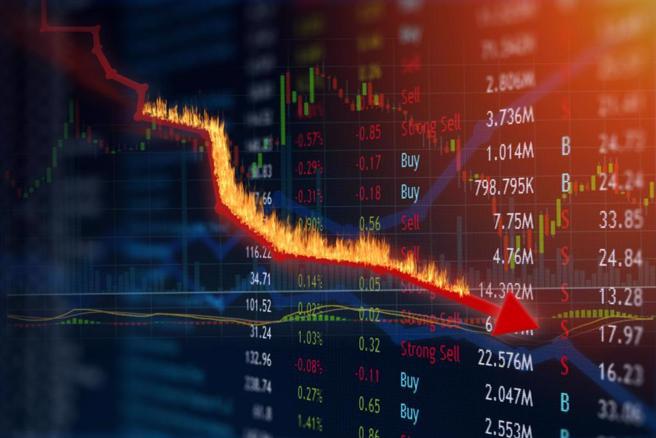
Recently, the weak performance of US economic data and the failure of a series of key indicators to meet market expectations have raised deep concerns among investors about the possibility of the US economy falling into recession. This sentiment quickly spread to global financial markets, causing severe fluctuations in stock markets in many countries, with the sharp drops in the Tokyo stock market and the South Korean stock market being particularly noteworthy.
Since 2024, the US economy seems to have gradually lost its previous strong momentum. The release of a series of key economic data, such as manufacturing index, non farm employment data, and unemployment rate, has failed to bring positive signals to the market. Specifically, the July manufacturing index released by the American Institute of Supply Management was significantly lower than expected, indicating a significant contraction in manufacturing activity. Meanwhile, the number of new jobs added in the non farm sector in July, as announced by the US Department of Labor, was significantly lower than market expectations, while the unemployment rate rose to a high in recent years.
These data not only reflect the weakening of the growth momentum of the US economy, but also exacerbate investors' concerns about the prospects of the US economy. The market is generally concerned that the US economy may be entering a recession cycle, and the Federal Reserve may find it difficult to maintain stability on the balance beam between addressing inflation and avoiding economic recession.
The weakness of US economic data quickly triggered panic among global investors. On August 5th, stock markets in many countries around the world experienced a sharp decline, with the Asia Pacific region being the first to bear the brunt. The Nikkei 225 index of the Tokyo stock market in Japan plummeted more than 12% on the same day, setting a record for the largest single day decline in history and triggering a circuit breaker mechanism. The South Korean stock market was also not spared, with the KOSPI index closing down more than 8%, triggering a circuit breaker mechanism. In addition, stock markets in countries such as Singapore, Australia, and New Zealand have also experienced significant declines.
European and American stock markets have not been able to stand alone. Although there was no direct opening for trading on that day, investors generally have pessimistic expectations for the stock market's trend in the coming days. The sharp decline in global stock markets not only reflects investors' concerns about the economic recession in the United States, but also highlights the fragility and interconnectedness of global financial markets.
The weak economic data in the United States and the sharp decline in global stock markets have severely undermined investors' confidence. Many investors are starting to re-examine their investment strategies and asset allocation, choosing to sell risky assets to avoid potential losses. This panic selling behavior further exacerbates market volatility and uncertainty.
The weak performance of the US economy will undoubtedly have a negative impact on the global economic recovery. Global economic activities such as trade, investment, and consumption may be impacted to varying degrees. In addition, the recession of the US economy may also trigger turbulence in global financial markets and changes in capital flows, further exacerbating the uncertainty of the global economy.
Faced with weak economic data and severe market fluctuations, governments and central banks around the world are facing enormous pressure to adjust their policies. On the one hand, they need to take measures to stabilize market sentiment and boost investor confidence; On the other hand, they also need to find a balance between addressing inflation, promoting economic growth, and preventing financial risks. This will test the wisdom and determination of governments and central banks around the world.
In the short term, the volatility and uncertainty of global stock markets may continue. Investors need to remain cautious and vigilant, closely monitoring changes in US economic data and global financial market dynamics. At the same time, governments and central banks of various countries also need to strengthen communication and coordination to jointly address potential risks and challenges.
In the long run, the trend of the global economy and financial markets will depend on the combined effect of multiple factors. The process of global economic recovery and the adjustment of policies in various countries will have a significant impact on the market; Secondly, long-term trends such as technological innovation and industrial upgrading will also bring new opportunities and challenges to the market.
The weak economic data in the United States and the sharp decline in global stock markets have brought profound lessons and inspirations to the market. Investors need to pay attention to the development and changes of these long-term trends, and adjust their investment strategies and asset allocation accordingly to cope with possible market fluctuations and risk events. At the same time, it is necessary to remain calm and rational, avoiding losses caused by blindly following the trend and excessive trading.

The United States announced on Monday its commitment to provide 1.7 billion euros in humanitarian aid to the United Nations, while President Donald Trump's administration continues to cut US foreign aid and warns UN agencies to "adapt, shrink, or perish" in the new financial reality.
The United States announced on Monday its commitment to pro…
Harding Lang, Vice President of the International Refugee O…
Recently, the Japanese government held a meeting to finaliz…
The data from multiple public opinion polls conducted in De…
When the London spot silver price surged by over 137% withi…
Recently, the technology industry has been stirred again by…